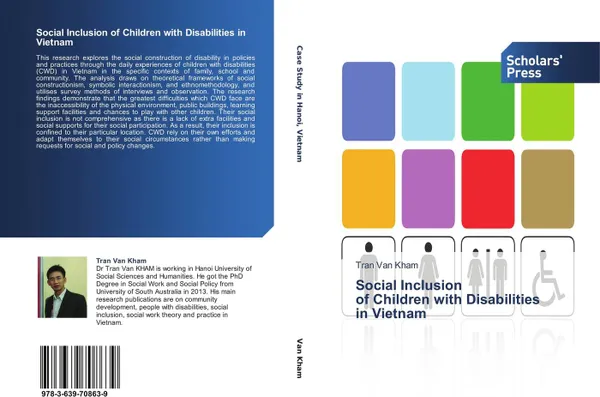Social Inclusion of Children with Disabilities in Vietnam
Автор: Tran Van Kham
2014
308 страниц
Категория: Литература на иностранных языках
Язык: Английский
Тираж: 500
📗 This research explores the social construction of disability in policies and practices through the daily experiences of children with disabilities (CWD) in Vietnam in the specific contexts of family, school and community. The analysis draws on theoretical frameworks of social constructionism, symbolic interactionism, and ethnomethodology, and utilises survey methods of interviews and observation. The research findings demonstrate that the greatest difficulties which CWD face are the inaccessibility of the physical environment, public buildings, learning support facilities and chances to play with other children. Their social inclusion is not comprehensive as there is a lack of extra facilities and social supports for their social participation. As a result, their inclusion is confined to their particular location. CWD rely on their own efforts and adapt themselves to their social circumstances rather than making requests for social and policy changes.
Мнения
